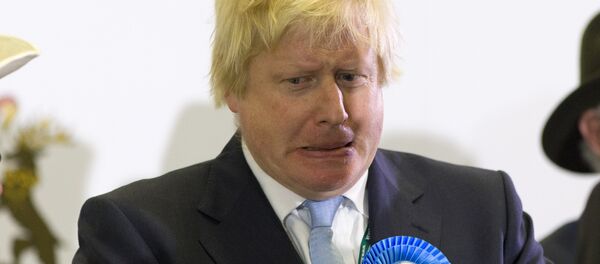"The US would prefer we remain in, because it's in American interests that we are part of the Union.
Because they think we [being part of the EU] will bring the influence in the direction they like," Lilley said.
"It can make a little difference in that direction [changing EU foreign policy]," Lilley said emphasizing that "it may make EU foreign policy more hostile to America on some issues. If there is ever a repetition of such things as Iraq war, for example, it is more likely that more EU members will take a separate view from the United States."
While speaking about trade, Lilley said that British exporters would not be harmed by possible Brexit, whereas EU exporters would lose a substantial market share.
"Our exporters would be no worse-off. But EU exporters would be worse-off. So we are in a very strong position. Sooner or later we will reach a free trade agreement with the EU," Lilley said.
The parliamentarian added that in case of Brexit, Britain could expect tough trade negotiations with the European bloc.
"These will certainly be tough negotiations, but we are in a very strong position. We are the biggest market for exports from other EU countries in the world. Moreover, they export far more to us than we export to them. So they have more to lose if they provoke a trade war between us. The only thing they can do under WTO rules is applying same tariffs to us, as they do to the rest of the world," Lilley elaborated.
"Now as part of the EU we cannot negotiate our own trade agreements. If we get out, we will be able to do that, with countries like China or India. It is important for us to have trade relations with big developing countries. But the EU always introduces political elements in their trade deals, linking them to human rights etc," Lilley, who is a former Trade and Industry Secretary and Social Security Secretary, said.
"I expect better trade relations with BRICS countries in case of Brexit," Lilley said.
At the same time, Brexit is unlikely to trigger the break-up either of the European Union, or the United Kingdom itself, Peter Lilley said.
"Brexit won't lead to the break-up of the EU. The Union's elite is so committed to the European project. They will continue with it no matter how much pain it causes. They may be shocked by our departure, and this can make them a bit less arrogant towards their own populations, paying more attention to the public opinion," Lilley said.
The parliamentarian also stressed that the disintegration of the United Kingdom, like withdrawal of Scotland or Northern Ireland, was also unlikely.
"I am sure the UK won't break apart," Lilley added.
UK nationals are set to vote on June 23 in a referendum on the country's EU membership, after Prime Minister David Cameron and the leaders of the 27 EU member states agreed in February to grant the United Kingdom a special status within the bloc.




